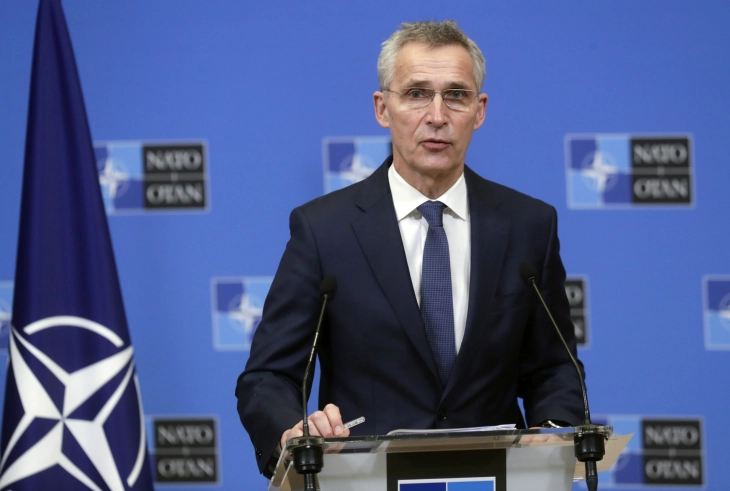NATO defence ministers endorse Ukraine military aid plan
- NATO defence ministers on Friday endorsed a plan for the alliance to coordinate military aid to Ukraine.
- Post By Ivan Kolekevski
- 16:43, 14 June, 2024

Brussels, 14 June 2024 (dpa/MIA) - NATO defence ministers on Friday endorsed a plan for the alliance to coordinate military aid to Ukraine.
"We have agreed on a plan that sets out how NATO will lead the coordination of security assistance and training," the alliance's Secretary General Jens Stoltenberg said in a press conference on Friday.
NATO countries have been coordinating support to Ukraine through an informal, United States-led group called the Ukraine Defence Contact Group.
The new plan would shift that responsibility to a formal mission under the alliance called NATO Security Assistance and Training for Ukraine (NSATU).
NSATU would see NATO officially coordinate military aid to Ukraine for the first time.
The plan was approved at a lower level on Thursday, alliance sources told dpa, and then endorsed by defence ministers on Friday.
NSATU will be headquartered in Wiesbaden, Germany and formally launched at a NATO leaders' summit in Washington in July, Stoltenberg said.
NSATU "will consist of a NATO command located at a US facility in Wiesbaden, and at logistical nodes in the eastern part of the Alliance, under a three-star general reporting to Supreme Allied Commander Europe."
"This effort is expected to involve nearly 700 personnel from NATO and partner countries," Stoltenberg said.
"NATO will oversee training of Ukrainian armed forces at training facilities in Allied countries, support Ukraine through the planning and coordination of donations, manage transfer and repair of equipment, provide support to the long-term development of Ukraine's armed forces."
"Ministers also discussed the need to bolster military deterrence and strengthen their defence industries by providing "sustainable demand," Stoltenberg said.
NATO has a long-standing target for member states to spend 2% of their Gross Domestic Product on defence - though until Russia's all-out invasion of Ukraine in 2022, only a few countries met the target, and many still don't.
But arriving before the meeting on Friday, Estonian Defence Minister Hanno Pevkur said 2% is insufficient.
"Two per cent is not enough" he said. "We need to go further from here."
He said Estonia proposes that upwards of 2.5% should be the target, while the Baltic nation itself is investing 3.4% this year and more than 3% next year.
"When we look also how much Russia is investing at the moment to defence this year - close to 9% of their GDP - then we all understand that when we put in comparison our 2% in NATO, or 3-3.5% in Baltic states and Poland, then still we need to invest more," Pevkur said.
The meeting on Friday is the last meeting of NATO ministers before a leaders' summit due to be held in Washington in July.
There, Stoltenberg wants NATO countries to agree a plan to maintain long-term their current level of support to Ukraine, which he puts at €40 billion ($43 billion) per year. The burden would be divided up according to NATO countries' GDP, with the United States contributing 50%, Stoltenberg said on Thursday.
The current agreement on NSATU does not include any specific financial commitments, but establishes that joint aid will at least be coordinated by NATO proper.
MIA file photo







